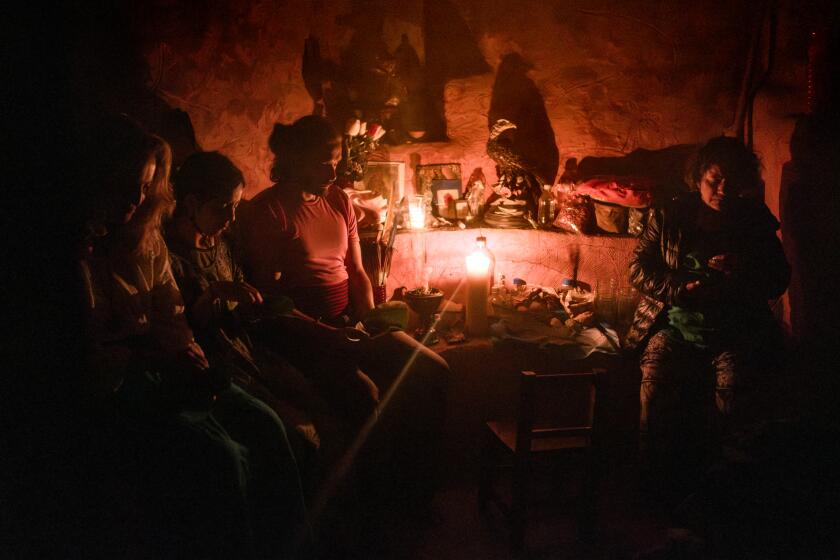Inside Iraq: Reporters’ Surreal Job
The Iraqi Ministry of Information building is bustling with the frenzied rhythms of the international press corps. Baghdad has opted to allow the nomadic hordes of journalists to enter the country as it carefully calibrates international coverage. When it comes to media manipulation, few play the game with the bluntness of Saddam Hussein’s regime.
Iraq’s visa games with the media place a challenging double burden: Journalists have to tread delicately as they cover the news there, and audiences around the world need to bear in mind the constraints shaping what they see, hear and read from Iraq.
In 1998, I was in Baghdad as part of a major news organization’s coverage of a looming U.S. attack. The regime had refused access to U.N. weapons inspectors to palace complexes throughout the nation. The Clinton administration threatened to bomb.
Back then few journalists had succeeded in obtaining visas to enter the country. If a war started, any media outlet without a presence on the ground would fare poorly. For those already in, the competitive pressure was enormous. Professional reputations could be created and destroyed in a new war. Having an adequate number of people was crucial. Iraqi authorities understood the situation perfectly.
Our principal workspace was in the Ministry of Information building, a site we understood was on the list of military targets if the U.S. attacked. The antiaircraft guns on the roof did nothing to add to our sense of security. Our phones rang regularly with pleas from friends and colleagues in other news organizations, beseeching us to intercede in their favor as they begged the Iraqi authorities to grant them access. But we had our own problems. We needed more people. As the crisis dragged on, we also needed to rotate staffers in and out of the country. We too needed the precious visas.
Finding the truth in Iraq is all but impossible. Every day on our assignment board we had the scheduled time for the “spontaneous demonstrations” in support of Hussein. Every man-on-the-street interview was conducted under the watchful gaze of a Ministry of Information minder required to accompany us at every turn.
To the nearly insurmountable obstacles to good journalism we had to add the knowledge that the ministry was closely watching what we reported. If we pushed the limit, it was likely to refuse us the new visas. If we crossed the line, we might find ourselves out of the country altogether.
On one occasion, two of us walked into the office of a government official to renew a visa request. He greeted us in a most cordial way and then proceeded to extol the virtues of our competition. He made a big show of casually shuffling papers on his desk, displaying a sheet bearing the competition’s letterhead and a list of visa requests, all the while commenting on his concerns about our coverage. We received his message quite clearly. We would tell the truth, but we had to be extra careful not to upset our hosts.
In 1998, a colleague who had spent a great deal more time than I in Iraq told me she managed to speak privately with a few Iraqis. Hardly a scientific sample, but every single person expressed hope that the U.S. would get rid of Hussein once and for all. Officially, though, every interview gave exactly the opposite message.
Once again, the reports we receive from Baghdad include displays of devotion to the president and no reliable information about what the Iraqis say privately. Speaking ill of the president to a reporter can lead to an early death in Iraq. The journalists reporting this week on the landslide reelection of Hussein face the task of telling the truth when they have no access to it. That leaves the rest of us with a not very useful picture of what goes on in Iraq and with the dangerous temptation to interpret what we see to suit our own ideas.
The reality is that no matter how much we read or how much is beamed to us every day, live from Baghdad, we know very little about what is happening, and even less about how the Iraqi people feel about a possible war on their soil.
More to Read
Sign up for Essential California
The most important California stories and recommendations in your inbox every morning.
You may occasionally receive promotional content from the Los Angeles Times.










